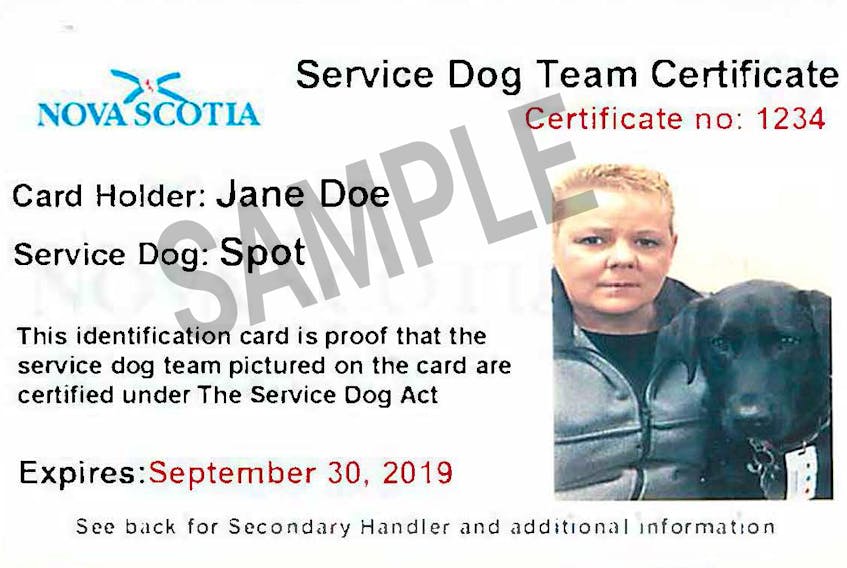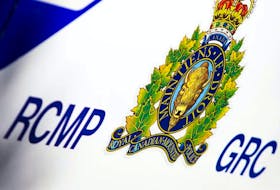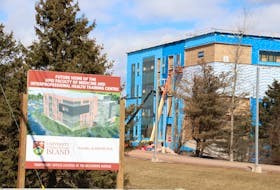Service dogs will have full legal access to all public locations in Nova Scotia when new legislation comes into effect on June 27.
Under the terms of the Service Dog Act, a provincial registrar will oversee the application process, certification and the issuing of official identification cards for service dog teams. The free cards will help people verify which service dogs and their users qualify for the right of access.
Kevin Johnson is a former Halifax Regional Police officer who was injured in 2009 after helping eight people escape a wildfire in the Fergusons Cove-York Redoubt area. He suffered nerve damage in both arms, visual impairment and severe post-traumatic stress disorder.
“I live with the physical pain every day, which varies from day to day,” Johnson said on Wednesday. “Some days, it takes me out of the game, some days I’m able to do other things but the PTSD actually was definitely a huge issue as well, something I never thought I’d ever experience or go through. It was very debilitating as well.”
In 2016, he was matched with his service dog, Maggie, through a Mental Health Foundation of Nova Scotia program to connect injured first responders with service dogs.
He has been challenged in accessing public areas with Maggie before, as recently as a couple of weeks ago.
“The legislation, for me, it’s going to make things hopefully simpler for me to gain access to the public places that anybody else gains access to.”
Johnson is an advocate for service dogs and is one of the co-founders of the Canadian Intervention and Assistance Dogs (CIAD) organization in Nova Scotia, which trains dogs for injured first responders. Ciad is Gaelic for “first.”
According to information at novascotia.ca/servicedogs, the act applies to dogs that are trained to assist people with disabilities who need help with everyday activities. Pets, emotional support animals or therapy animals are not included.
Johnson stressed that when the service dog teams are in public, the dogs are working and should not be distracted. That means people should not try to speak to them, pet them or even make eye contact with them.
Victor Syperek, owner of The Seahorse, The Local and the Marquee Club, has no problem with service dogs being allowed into establishments that serve food as long as they are wellbehaved.
“I don’t personally feel that animals are as filthy as the Board of Health seems to think they are,” Syperek said. “I’m from Europe and dogs are regularly allowed in restaurants there.”
He hasn’t heard of any other restaurateurs who do have a problem with the service dogs.
Luc Erjavec, Atlantic vicepresident of Restaurants Canada, said restaurateurs are supportive of the bill.
“These are highly specialized animals and (are) well-trained.
We don’t have any issue with that,” he said in a telephone interview.
“You may take a couple of extra precautions around cleaning . . . (but) really there’s no issue and we’re very supportive of it.”
Service dog team members must apply for certification with the province. If the dog has not been through an accredited training school, the team will have to pass an assessment. People on income supports may qualify to have the $187.50 assessment fee waived.
Offences under the new law will include denying access or tenancy to a certified service dog team, or falsely representing a dog as a certified service dog team member when it is not. The maximum fine for violations is $3,000, but the province says it plans to first emphasize education and public awareness









